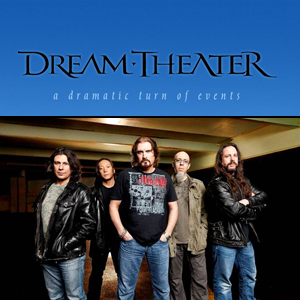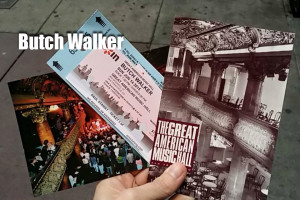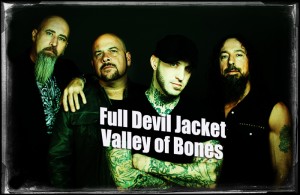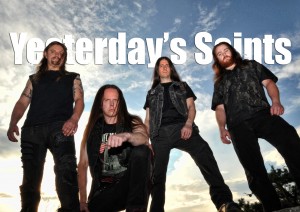Holy Weather: A Conversation with Civil Twilight
16 min read
Civil Twilight @ the House of Blues

Civil Twilight is one of those bands that lives in subtlety and is best experienced with headphones on and maybe even with the lights off. It’s interesting that they would also take their name from that condition of the same name. Civil Twilight is defined as that time that begins in the morning and ends in the evening when the center of the sun is geometrically 6 degrees below the horizon – this is the limit at which twilight illumination is sufficient, under good weather conditions, for terrestrial objects to be clearly distinguished. Photographers call this the magic hour. This also best describes the sort of effect that they have on their audience both musically as well as in their imaginations. That’s how you describe Civil Twilight the band – a band that has a very good command of that intangible thing that only happens twice a day. As I prepared to chat with Steven McKellar of Civil Twilight, I thought about this space that we occupy – this interstitial space where our imaginations are allowed to wander between reality and fantasy and ask him about everything that makes them tick. Check out the conversation!
C6M: Hi Steven.
Steven McKellar: Hi, how are you doing?
C6M: Good. I just wanted to talk a little bit about your background before we start getting into the new music. I think it’s kind of a fascinating story coming from South Africa where you formed your band, and then how you made your decision to come to the United States.
Steven McKellar: Well, it was the — I think it was a dream of ours since we started the band to come to the States. It wasn’t too — we weren’t quite sure if it was the States or anywhere else, we just wanted to get the hell out of South Africa [laughter]. And so we always planned to do it, but we just never — it just you know, nothing’s happened. So, it was kind of like eventually it just boiled down to this last minute decision we made, that we discovered — we knew a few people in L.A. and told our parents that we were going to leave. I was 21 at the time, so we just told them we were going to pack our bags and go and we’ll be back, knowing that we wouldn’t be back, you know. And it was that simple. I mean we just booked our tickets and went and stayed with people for months and eventually got our own place, and about three years later, we were able to get visas and stuff {like that} to be able to stay there, met our manager in LA and then kind of just made a record with him on our own, and then started turning with that on our own and then we got signed with Wind-up to do that. So, we were kind of taking a long time, but it’s all just like strange, spontaneous decisions that you make, you know, that lead you to the next stage.
C6M: So, now you’re in Nashville, so you’ve been to sort of the big cities. How did you sort of end up in Nashville? I mean it sort of makes sense on the level that it’s music city, but it’s very different, like when we talk about cultures in general, especially when you talk about the United States between going from a place like Los Angeles or New York City in fact, and then ending up in Nashville. That’s very, very different.
Steven McKellar: Yeah, I know. I mean it was one culture shock going from Cape Town to L.A., but I think it was even more of a culture shock going from L.A. to the South. And really, our eyes opened up to what most of America is like, you know, and it was eye opening, it was quite scary, but I think the reason why we made that decision, we wanted to make a record and it was too expensive to record in LA. And so, our manager knew a friend of his who lived in Greenville, North Carolina, and so we found this tiny little studio that was really cheap, and we recorded our album there. We just drove across the country in our little van. And we’d never been to the South before, so we didn’t know what to expect in that. So, we stayed in Greenville, which is a tiny little place. We stayed there for about a year actually, and so we just felt we needed to get the hell out of there, so we made another spontaneous decision like what’s the nearest big city, let’s go try that out. So, we knew like three people in Nashville. And now we’ve been there for a few years and it’s been great. It’s a nice place to come back to, you know, after touring and it’s a lot of good music and good musicians.
C6M: The one thing that I know about Nashville, I’ve been there myself, is that it does give you that big city feel, but with like the very southern hometown people in it. It’s kind of an interesting dichotomy, because when you get to the city, is it’s very much the opposite. People want you to leave them alone basically.
Steven McKellar: Yeah, yeah, it’s true. That’s great as well, being a music town, everyone knows — everyone is either in the industry themselves or dating someone in the industry or married to someone or was in the industry. So, everyone kind of knows where you’ve been and what you’ve been up to, and there’s no giant disconnect when you come off the road. People just want to make you feel relaxed, and I really appreciate that, I do.
C6M: So, you guys have been around a little while now. You’ve actually received significant exposure on television and films. I’d wager to say that while you’ve had that exposure, you’re probably also one of those bands that’s sort of gone under the radar, sort of one of the best kept secrets in music in a way. But let’s talk about where you guys were a couple of years ago as opposed to where you are now. I mean you’ve played on some fairly large name tickets and a few festivals and toured with some high profile bands. I got to see you guys open for Anberlin a few years back on their Dark Is The Way, Light is a Place tour. What was it like to sort of tour with those bands and then what’s the biggest thing you took away from doing a tour with them sort of and how that would shape who you guys are as you moved forward and where you wanted to go?

Steven McKellar: Yeah, gosh, that’s a big question, I think. Yeah, I would say there’s a lot of different styles of bands. I think what we’ve learned as musicians and as band members, I think, is no matter what the audience is and who they are and what age demographic they may be, and what they’re expecting from you, if you keep pandering to what you think they want to hear, you’ll always just shoot yourself in the foot, you know. I think we’ve learned that the hard way, like our music is what it is, and it’s best displayed when we just play it with integrity and passion. If people don’t get that, that’s fine. I think we’ve learned to accept the fact that not everyone is going to get it. And that takes many years of experience, and I think I’m really grateful for those gigs, you know. I don’t think we’re there yet, but we’re — it’s like a — it’s a journey you know.
C6M: So, are you feeling like you’re sort of coming into your own, at least awareness more now than you were, say, when you first started out, maybe in that sense?
Steven McKellar: Yeah, yeah, definitely.
C6M: Well, let’s talk about where you are now musically. I just listened to the new music, and it’s Holy Weather, right?
Steven McKellar: Yeah.
C6M: And it’s an interesting title. I’ve been through Tennessee through Tornado season and that’s one of the thoughts that kind of made me laugh, is that you know you think wow, whoa, you know. But I want to know where you came up with a title like that?
Steven McKellar: Well, it was [laughter] — it was kind of a mistake. I mean we were demoing — we were on the road at the time and we were demoing for the new record, and I had demoed a few songs on my computer. And that was like — one of the working titles for this weird, weird track that I’d made, that I didn’t think would even get on the record, was — the working title was — I think it was Dirty Weather was originally the title. And then I just flipped it and thought let’s flip it. Flip dirty and make it holy and see how that looks. I just liked the way it looks, and then I kind of wrote the lyrics of the song around this idea that — well, it doesn’t really have any meaning I guess. It’s just this — in some weird strange way it matches with the message of the song or the story of the song, which is one person bound by sort of a destiny of nature around him, and it’s happening. And then sort of being tortured by the fact that this person they left can’t be within, you know — live within the same capacity he can amongst this like treacherous sort of landscape. It’s kind of like that, yeah.
C6M: You mentioned on your website about coming from a place of nostalgia when you’re sitting down and you’re writing your music. And I found that imagery really interesting, because I felt like when I put my headphones on, and I was listening to this particular album, it gave me this sense of urgency, if that makes sense. Listening to something when you’re feeling your most vulnerable and thinking I feel like, “I got to do something with my life.” And I thought it was fascinating, because you know, you listen to your lyrics and then one of them in particular that says, “you got to know what it’s like to be on the edge of something.” And as far as lyrics go, that really sort of resonated, and I know you guys, like I said, mentioned nostalgia as something that you drew from. But is the creation of music something that you want to resonate on that same private level? And then I don’t know, sort of explode out of performances, so that people get that?
Steven McKellar: Yeah. Gosh, I’ve tried to write more objectively, you know, but I love what I do and it’s hard to sort of keep your heart from creeping into even the most strange idea [laughter]. Something that’s like — even something that’s completely unrelated to you, you know, like circumstantially maybe within the story that you’re writing about. You’re always going to find that your heart creeps in some way there and you attach yourself to something. So, you just have to sort of as an artist I think, you have to just learn to just be okay with that you know. Fortunately for us, we’ve been around for a long time, so it’s not a very scary idea for people to — for me to know that people are diving to these ideas, that they might not like or they might like way too much or — and they might tattoo on their bodies and you know. I haven’t really thought about that like I just — all I hope is that they feel the same way I do when they’re listening to the music you know.
C6M: Is that scary? Is that scary to have fans that are almost like disciples in that sense? I mean I do wonder sometimes, you know, if someone like yourself writes something, and then someone else sort of dives in like, you know, someone like myself who says “Oh, here’s a thing that resonated with me.” Does it strike you though as a person who goes wow, you know — I’m not saying that this is what it was about, but you know, you’re like “I was writing about monkeys and you got aliens out of this,” you know.
Steven McKellar: [Laughter] Well, I mean that’s an interesting comment too, because I actually love that aspect of songwriting. Even if you write a song that you think is more specific and the other sort of vague song in record and sort of more storytelling. People always just — they’ll take what they feel or might interpret the song their own way. And I’m always excited to see and to hear what people — how people interpret the songs. I don’t really necessarily want to correct them and say, “Actually, that song is about monkeys.” But to me, I’d rather just keep it a mystery, but it’s always interesting to hear how people interpret it. It’s like fascinating, and yet they still — they might be completely off, but yet they still feel something that I felt.
C6M: Right, right, it’s interesting, because as you as an artist I’m sure create something that it’s a little weird when it sort of no longer is yours, because fans very much embrace music as a possession, so I do find that interesting.
Steven McKellar: Yeah, I think this — there is a Wilco album Sky Blue Sky and I think the first track on that record, just the way he talks about — one of the lyrics is something like you have to realize that when you create something, it no longer becomes yours, it’s now everyone’s. And that’s something — it sounds like he’s taken a long time to learn himself, but yeah, I’ll get there eventually.
C6M: Right, so let’s talk about the music on this album, because the other thing that struck me was that you guys do have a sound that is very much like something that when I hear it, I go, “That sounds like a Civil Twilight,” but this album seems like you experimented a little bit on just different rhythms and different vocal sounds. Talk a little bit about the process of going through and sort of pushing yourself in a direction that stretches yourself, so that you’re not I guess making the same album twice.
Steven McKellar: Yeah, yeah. Well, I mean I think what always helps, and I would always encourage a new artist to do this. If you want to push yourself and then you create a direction and you’re a songwriter, it always helps to just put yourself in an uncomfortable position where you have to sort of learn to start from scratch again, you know, like for instance picking up a new instrument and learning to write on new instruments or in our case it was like — for me it was getting a computer which I never had before, and on the computer it had GarageBand. And so, I would just like — basically I would spend a week or two just experimenting on GarageBand and not even thinking that I was writing, just kind of learning how it works…and I wanted to do something that people, our fans, would have to experience…and we were surprised at how our fans responded. I thought it would be a little more hostile. I thought they would be a little more offended at our changes.
C6M: Let’s speculate a little then in terms of the future of Civil Twilight. Where do you think you guys are going to go from here and how do you think — you were talking about experimentation, what is the ultimate I guess goal for you guys?
Steven McKellar: I think the ultimate goal — I mean that is a big, big question, but I think for us if we can maintain, like I was talking about earlier, sure you can take you know, I don’t think we’re there yet, but I think if we can keep discovering — I don’t know — I mean just discovering who you are, I mean it’s discovering about who you’re not or something. I’m not really sure. But it’s more like just keep pushing ourselves into new areas and grow our fan base that’s sort of willing to dive into the murky with us, you know. We don’t want to create a brand necessarily that associates to one style and one image and one focus necessarily. I think that’s maybe at our beginning stages, at our sort of naïve, adolescent stages where that was sort of the idea of it. Now we’re a little older and we’re kind of like we want to keep messing things up. And you know, something like creative, we just keep pushing ourselves and I think it comes from a place now where we don’t — we’re not really as scared as we used to be, to fail, you know.
C6M: Sure. It’s really interesting that you said that something like sort of figuring out who you’re not, because you know I think sometimes people make comparisons you know with artists. They say your band sounds a little bit like this band or this other band, and it’s interesting that you would point out that that may not be you, you know, and not being afraid to push some other boundary. I find that very interesting, because some bands you know may not take that attitude, and then in doing so, they sort of put themselves in a corner to create the same album over and over again, you know. So, it becomes a dangerous place to be I think as an artist in general.
Steven McKellar: Yeah, well I tell you it’s suffocating, you know. I’ve seen it happen first hand with bands you know, and it’s like we’re not in the ketchup making business. We’re not here to produce a product for you. We’re artists, you know, that’s the whole point.
C6M: You guys have come a long way from South Africa to the United States. I was thinking about this fact, that like I said, that you’re sort of under the radar, but not at the same time, because you’ve gotten your exposure. But I was just thinking about the idea that you guys seem to be very in touch with I guess the way that things work now. And by that, I mean you know, that everyone is sort of like into the new social media, you know, they’re into the Facebooks, the Twitters, and you guys seem to be very connected with that. Do you feel like today’s bands have to be sort of web savvy or is it just something that is a part of who you guys are now. It’s not so much that you’re web savvy, it’s just that you’re in touch.
Steven McKellar: Yeah, gosh, it’s interesting that you say that, because I don’t feel in touch at all. But yeah, it’s interesting what you said, because I was thinking about this today and nowadays with all these avenues for bands to explore and for fans to explore and to discover more about their bands, it’s become less like — the bands are less like leaders and more like you get into a relationship with the band. It’s almost like you know you don’t follow a band, you to develop a relationship with them. And they have opinions. Bands have opinions and their fans have opinions and you work out an existence that is sort of mutual. And they work it out together over many many different avenues. I think that’s an interesting shift now a days. I remember when we were designing the cover for this album, Holy Weather. Andrew had designed it already and he’s a great designer. And he was like this it, kind of thing. And he put it out there on Facebook. And what he said was said was like, “Hey guys this is going to be our new album cover, what do you guys think?” And I would say like ten years ago, “What do you guys think?” would come across as like, “Hey this is it! Take it or leave it. What do you think?” But the way it’s perceived now is like a relationship status that way it works now. Most of the people had opinions of what they thought should change about our cover. So what do you think became, “Hey you’re a part of this thing. You’re just as much a part of this as I am. What do you think? What do you want changed?” And I thought, wow that’s fascinating because that resonates every other area. Musical. Image. I don’t know. You can narrow it down to everything. It changed the way you deal with fans and the way that fans deal with us. I don’t know. I’m just geting my head around it. I’m not tech savvy at all. I don’t own an iphone or anything. I think I should, maybe someday. I think it’s all fascinating.
C6M: I would say, don’t buy those gadgets until you absolutely have to…but then again, don’t listen to me. I probably own all of them. So what’ do I know? Well thank you so much for taking the time to talk to us. We wish you lots of luck. It was a real pleasure. And we’ll do what we can to let people know what’s up with Civil Twilight and thank you for a great conversation.
Steven McKellar: Yeah, yeah. Cheers.
Special thanks to Steven for taking the time out of his day to speak to us. Civil Twilight will be touring throughout the states and also traveling back to their home in Africa in the late fall. If you have a chance please check out the Album Holy Weather and see them on tour – it promises to be full of surprises. And as always, if you get a chance to chat with them, be sure to let them know that Paul sent ya.






